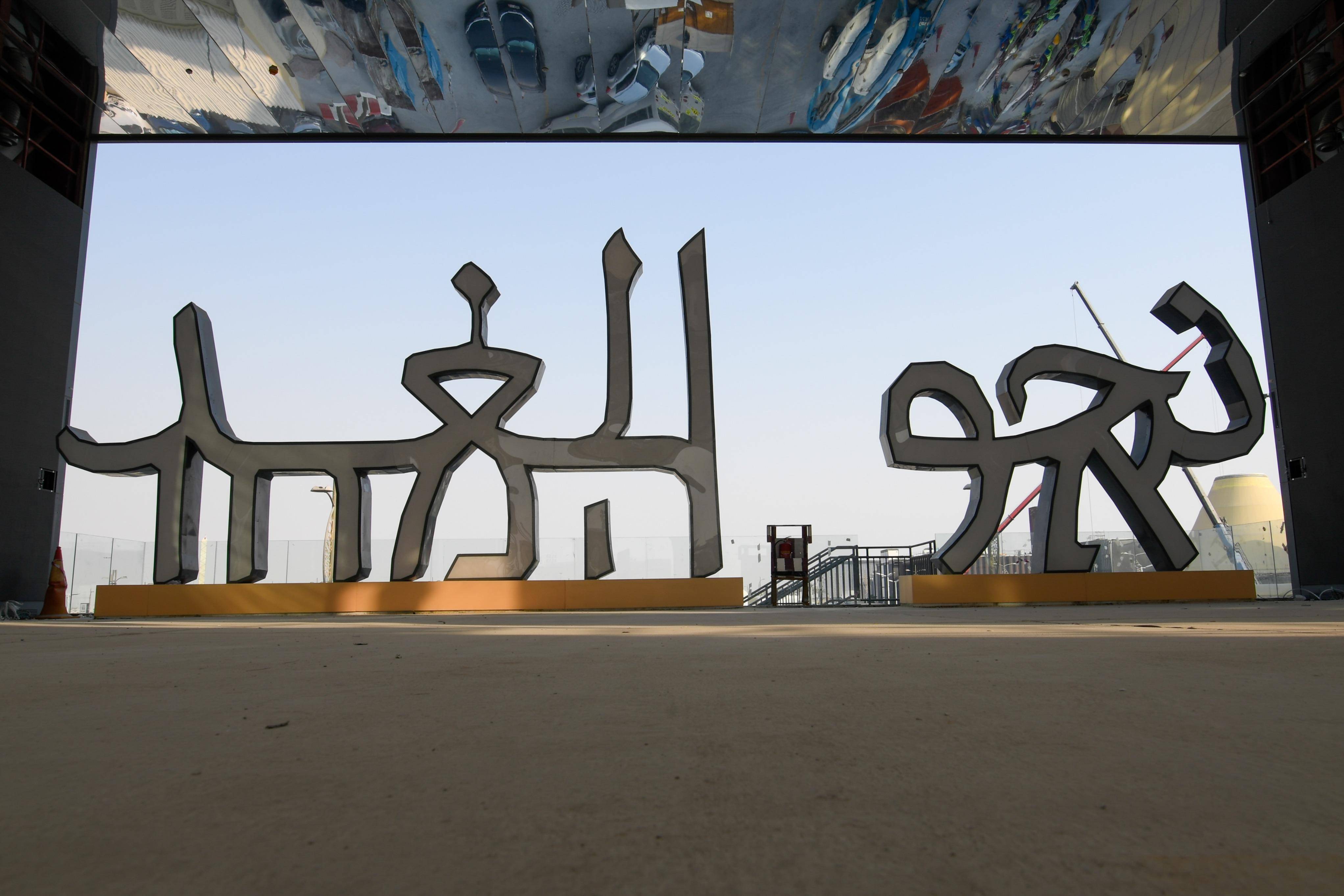[ad_1]

In the main hall of the pavilion, a 360-degree immersive performance on a 250-square-meter screen will present Israeli innovations for a better future
The Israel Pavilion at Expo 2020 Dubai draws inspiration from arid landscapes, using the shape of sand dunes and shaded Middle Eastern streets.
These 986 square meters of sand dunes are framed by seven LED screen doors using 630 square meters of LED panels, creating an important open space for people to gather, discuss and share ideas. The pavilion was produced by the company AVS led by Malki Shem-Tov and designed by Knafo Klimor Architects. It is 15 meters high and has a building area of more than 1,550 square meters.
The sand dunes sit on the raft foundation, and the steel structure of the pavilion was prepared in a workshop in Dubai and assembled on site using dry connections and a variety of approved cladding materials. The dune floor is formed by using a thin layer of concrete on top of the trapezoidal steel structure to create the unique geometric shape of the dune, and then sand-colored recycled rubber is spread on it.
David Knafo, Managing Director of Knafo Kilmore Architects, said: “The Israel Pavilion provides an open space, a sand dune surrounded by seven gates reflecting joy and hope. The sand dune provides a place where imagination can help our planet The future, ecological diversity and protection of human heritage have created breakthroughs. The current climate and ecological crisis requires the urgent mobilization of global goodwill, new technologies, inventions and close partnerships in order to create new horizons for the next generation.”
The pavilion led by the Israeli Ministry of Foreign Affairs uses many unique and ingenious elements. The LED screen wall can be used by visitors to interact with Israelis in games and have certain control over the content presented on site. These LED screens are also the cladding materials for the interior walls of the seven doors. The LED screen will present a variety of images and videos, showing a variety of timely content, such as; reducing world hunger, protecting nature, energy for all, water resources protection and adaptation in arid countries, health technology and network security. The dune layer is also equipped with virtual reality binoculars, allowing visitors to experience the scenery of Israel.
There is a large illuminated sign on the top of the sand dune, 15m long and 5m high, with an aluminum structure, a translucent front cover and an internal LED lighting device. The logo is made up of the letters in “Aravrit”, a typeface invented by typographer Liron Lavi Turkenich. Aravrit is a mixture of two local scripts, combining Hebrew and Arabic characters. The upper part of each letter is composed of Arabic and the lower part of Hebrew. The meaning of the logo text in the two languages is the same, “Towards Tomorrow”.
In the main hall of the exhibition hall, a 360-degree immersive performance on a 250-square-meter screen will showcase Israeli innovation and create a better future. Our time is facing challenges in medicine and healthcare, food production and agriculture, communications and space, and many other key aspects of human life.
The pavilion creates a miniature, using shading and sprinklers to achieve a mild microclimate. The pavilion is designed to be demolished after the World Expo. Except for the concrete floor, all building materials and elements will be recycled.
Elazar Cohen, Commissioner-General of the Israel Pavilion, said: “Our pavilion reflects the spirit of Israel, and it is this spirit that made us. We are made up of different peoples and cultures. We may take different paths, but we are all facing the same today. Great challenges. We hope to connect our thoughts to solve these challenges together.”
This open space overlooking the Expo Park is a place to connect ideas and find solutions to today’s human problems. The Israel Pavilion echoes the urgent need to reshape our future by sharing technological achievements, scientific inventions and novel ideas for the benefit of all.
[ad_2]
Source link
